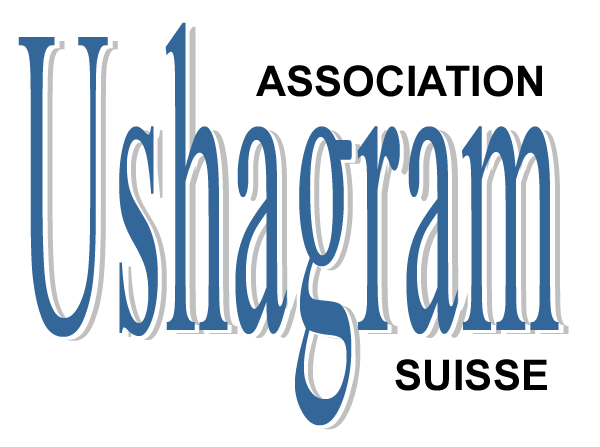Who we are
More than 200 projects in the service of disadvantaged populations since 1999Ushagram Suisse, a non-profit State recognised association of public utility, was founded in 1999 in Geneva. We go to the field, observe needs, note feasible projects, look for local NGO partners with whom to collaborate directly, set up and follow-up projects with them. Our fundraising mainly involves the Municipalities of the Canton of Geneva.
The association outreach initially covered West Bengal and Orissa in India, then Lebanon since 2015. In Bengal, it developed rural development projects in support of Bangladeshi refugees and host populations. In Orissa, it supports indigenous tribal populations. In Lebanon, the focus is on Syrian refugees and disadvantaged host populations.
Main domains of action: access to healthcare, development of sanitary solutions, access to drinking water, improvement of diet, support of organic farming, education and training for children and adults, training for the creation of income generating activities, women’s self-help groups, micro-credit, youth associations, etc.
India, West Bengal
The first rural development site that the association supported was in northeast India, one of the poorest regions, bordering Bangladesh, where economic refugees from the neighbouring country constantly flock. About 40,000 people in 14 villages have benefited from the programmes during 13 years.
Our institutional donors
The following administrations and institutions are part, or have been part of the donors of the programs supported by the Ushagram Association: MIGROS, SIG, Geneva City, Department of Social Affairs / Canton Geneva, International Solidarity / 1% UN Fund / various Canton Geneva municipalities: Anières, Athénaz, Bardonnex, Chêne-Bougeries, Chêne-Bourg, Choulex, Collonge-Bellerive, Cologny, Genthod, Jussy, Lancy, Laconnex, Meyrin, Onex, Plan-les-Ouates, Prégny-Chambesy, Puplinge, Thônex, Vandoeuvres and Veyrier / Poschiavo Municipality (Grisons) / Bank Lombard Odier Darier Hentsch & Cie. / Geneva Association of watchmakers…
India, Orissa
Since 2004, we support a rural development site dedicated to indigenous tribals in the State of Odisha, India, having been driven from their ancient habitat due to the construction of a gigantic hydroelectric dam, the Kolab reservoir. This programme includes the education of 200 children, first-learners, the previous generations being illiterate. It also includes empowerment initiatives for local villagers. Direct beneficiaries are some 800 people from four villages and indirect ones are about 2,500.
In recent years, some of the children having become teenagers have expressed the desire to take over the programme in due course and to replicate the model. They have finished their studies and took their exams at the capital. During this transition phase of several years, on mutual agreement with our local partner, we have decided to support the sustainability of the site with micro-projects.
Lebanon, Syrian refugees
Since 2015, we support Syrian refugees and disadvantaged Lebanese host populations in partnership with local NGOs recognised. Lebanon, as large as French-speaking Switzerland, has twice the population density. With the massive influx of refugees, its population has grown by 50%. The challenges for this host country are enormous and multiple.
We focused on empowerment and resilience with the following projects: in 2016, handicraft training project for refugee women from West Bekaa; in 2017, agricultural training for Bedouin refugees; in 2018, access to drinking water and the equipment of a training room for 100 tent families in the north; in 2019, training of 32 adolescents in car mechanics and esthaethics; in 2019 and 2020, professional training in cooking and food preservation. Seen from afar, the situation seems to have calmed down in Syria, but in reality, the refugees (especially the opponents of the Government) fear the return to their devastated country. According to our local partners, the needs will therefore remain for a long time.
From 2020 to 2024, we have been focusing on giving refugee children in the Bekaa BLN classes (Basic Literacy and Numeracy). Out of 825 children trained, 511, of which 65% of them girls, have integrated the school system, an average of 128 per year. The need at national level is 420,000, ie. 60% of children present.
Ushagram means “village of dawn”. The association was named after a visit by its founder, Ms Kari Bohr, to the village of the same name in West Bengal. Since 2001, she has been accompanied and assisted by Jacques Albohair, who took over as Chairman in 2012. Currently Executive Director, since 2014 he focuses mainly on setting up and managing projects in the field.

